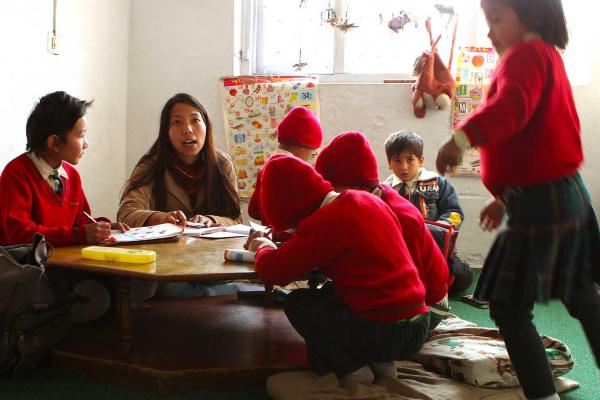As I pack to leave Peru, I'm thinking back to that expectations that I had while packed these same few items into my suitcase only five months ago.
I probably believed that I was going to change the world in the little time I was here. I certainly did not take into account the challenges that accompany working with an NGO and in a developing country.
During my time in Peru, I definitely acquired a different approach to life and became more flexible. Here's what else I learned over the last five months:
1. You can make a plan, but you cannot force it to go the way you thought it would.
The difficulties that you encounter can be small and easily solved with a bit of creativity. Or they can be big and hard to accept when it is the only thing that is left to do.
2. Don't take electricity for granted.
Power can become unavailable for the entire day without notice.
3. Often, you will arrive at a meeting terribly late, only to discover you got there first.
Or, you'll go go to a secondary school to promote a free health campaign, only to discover that all the teachers are on strike and you do not know if they'll be back in the next week or the next month.
4. It can be hard to find the right evaluation tools.
Being in charge of the start-up of a new educational workshop, I found it difficult to find the right evaluation metric. Conventional teaching methods don't work if you want to engage students in taking an extra lesson after school instead of having fun playing with their friends. In turn, this makes it difficult to evaluate progress if you aren't conducting standard exams and attendance may not be continuous.
5. Learning to work with limited resources is key.
It can be hard to find qualified teachers that are willing to work unremunerated for a long period. However, you start the project with the available resources. You test how it goes and see that it has its imperfections. Still, the students are enjoying the class and you understand that your small action is a step closer towards the bigger plan. You know that new volunteers would implement the project thanks to their different perspectives and backgrounds.
6. Life can be difficult for all living creatures.
The hardest day was when I found out that the little stray dog, which some volunteers and I brought home, had an incurable disease. He got it from the street. There are so many dogs living in the same unhealthy conditions. We thought that we saved him, but the environment he was born in did not give him any justice. However, when we took him home we gave him the care that he never had and he received a happier life, even if for a short time.
7. Fighting poverty is a mission that is hard to accomplish—but it is possible.
When I first arrived, I met a volunteer who busted into tears before returning home thinking that all their efforts may have been forgotten or considered useless. It was one of my biggest fears when I started this adventure.
However, now I know that every individual brings their own experience to build progress. Thanks to all of the individual efforts, it will bring a bigger and more positive impact in the long-term.
Add this article to your reading list




